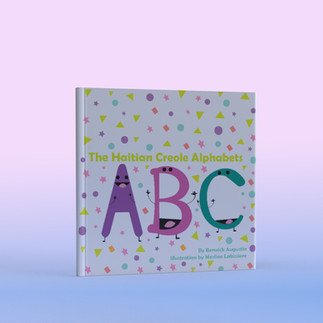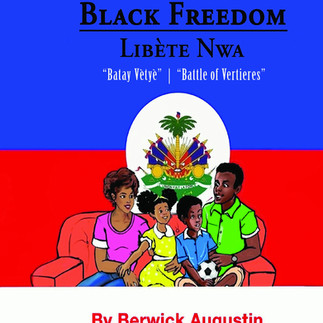Speaking Multiple Languages Can Benefit Your Brain and Your Life
- Berwick Augustin

- Apr 22, 2024
- 3 min read

The vibrant streets of Little Haiti and the hallways of Edison Middle School echoed with life in the mid-80s. A ten year old young man from Haiti marveled at the colorful mosaic of cultures in his surroundings. Amid the tropical breeze and lively chatter, he danced between the rhythm of his Haitian-Creole native tongue and the syncopated command of English. Through the use of Latin roots and context clues, he soared beyond expectations. Within a year, he earned a spot in advanced classes which ultimately led to multiple college degrees. This is a glimpse of my story, which is relatable to millions of people in America and beyond. This isn't just about academic success-it's a testament of the transformative power of speaking multiple languages.
In today's interconnected world, being bilingual is a valuable skill that offers numerous advantages for students in their academic pursuits and future careers. From enhancing cognitive abilities to opening up cultural and professional opportunities, the benefits of speaking more than one language are vast and impactful. Let's explore these benefits backed by research-based sources.
Cognitive Benefits
Research has shown that bilingual individuals often demonstrate improved cognitive abilities such as problem-solving, multitasking, and critical thinking. A study published in Frontiers in Neuroscience found that bilinguals have superior executive functions, which include working memory and cognitive flexibility . Learning a second language requires the brain to juggle different linguistic structures, enhancing overall mental flexibility and creativity.
Academic Achievement
Bilingual students tend to perform better in school across various subjects. According to a study in the Journal of Experimental Child Psychology, bilingual children outperformed monolinguals on cognitive tasks involving executive control and abstraction . The ability to think in two languages can lead to a deeper understanding of complex concepts and improve communication skills. Bilingualism can also enhance memory and attention to detail, helping students excel in their studies.
Cultural Awareness and Sensitivity
Being bilingual opens the door to new cultures and perspectives. Research published in Psychological Science found that bilingual individuals are more empathetic and sensitive to cultural nuances, leading to better cross-cultural understanding . This heightened awareness fosters a greater appreciation for diversity and helps students become more inclusive global citizens.
Enhanced Career Opportunities
Bilingual individuals are in high demand in the workforce. According to a report by the American Council on the Teaching of Foreign Languages, companies that operate globally prefer hiring employees who can communicate in multiple languages . This enables businesses to expand their markets and reach a broader audience, giving bilingual professionals access to a wider range of job opportunities and potentially higher salaries.
Social and Personal Growth
Bilingualism can lead to richer social experiences and personal growth. Speaking more than one language allows individuals to connect with a wider range of people, fostering meaningful relationships and a broader social network. Additionally, a study in International Journal of Bilingual Education and Bilingualism found that bilingual individuals exhibit greater self-confidence and resilience when dealing with new environments .
On a practical note, here's an opportunity for you to learn a second language if you reside in South Florida. In celebration of Haitian Heritage Month, the City of Miramar and Commissioner Yvette Coulbourne is sponsoring a six week Haitian-Creole class for FREE taught by none other than yours truly. Seating is limited, register today!
Being bilingual is a powerful asset that can transform students' lives both in school and beyond. From cognitive advantages to cultural awareness and enhanced career prospects, the benefits of speaking more than one language are undeniable. Encouraging students to embrace bilingualism can help them thrive academically, professionally, and personally in an increasingly interconnected world.
Here are some resources that I've written that can also help with learning Haitian-Creole.
Berwick Augustin is the founder of Evoke180, a leading publishing company that also specializes in Haitian-Creole translations. He is an educational consultant and keynote speaker who embodies two decades of experience as a writer, teacher, and assistant principal. Berwick is the author, most recently, of The Education Formula, Days, Months, and Seasons in Haitian-Creole, The Haitian-Creole Alphabet-and 1803 The Haitian Flag.
Sources:
Frontiers in Neuroscience: https://www.frontiersin.org/articles/10.3389/fnins.2017.00591/full
Journal of Experimental Child Psychology: https://www.journals.elsevier.com/journal-of-experimental-child-psychology
Psychological Science: https://journals.sagepub.com/home/pss
American Council on the Teaching of Foreign Languages: https://www.actfl.org/
International Journal of Bilingual Education and Bilingualism: https://www.tandfonline.com/toc/rbeb20/current














Comments